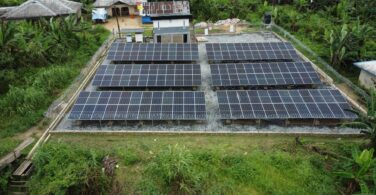Criteria classification decision trees for problematic and avoidable plastic products
A briefing report for the INC-4 informal, technical dialogue co-chaired by the UK Government and Government of Brazil

At INC-3 a significant number of members identified the need for further work on potentially problematic plastic products. This informal technical dialogue also builds on a previous informal technical dialogue following INC-2, hosted by Brazil and the United Kingdom, on chemicals and polymers of concern and potentially problematic plastic products (the report of which is available here).
The output of the informal technical dialogue is a report which summarises the outcome of the Brazil/UK led informal dialogue on criteria classification decision trees for problematic and avoidable plastic products (see link below). The outcomes of this technical informal dialogue are intended as an aid for discussions between members of the Intergovernmental Negotiating Committee on Plastic Pollution (INC) and are not meant to pre-judge the outcomes of INC-4.
This INC-4 informal technical dialogue was structured around an online real-time Delphi process conducted from February 19th to March 14th 2024. Nominations of experts to participate in the dialogue were provided by INC members upon request from the Brazil and UK Governments. Where multiple nominations were received from individual member states, the United Kingdom and Brazil requested those experts to coordinate their response so that only one expert was registered to the online platform and not more than one response could be received by each member state. This meant that of the 59 experts nominated and provided with the link to complete the survey on the online platform. Of these, 34 registered experts provided responses to this survey (see details on the countries that completed the survey in Annex D). Furthermore, experts also had an opportunity to provide comments and statements in relation to each criterion and an exchange of views between experts was enabled through a final online meeting. A summary of these comments is included in the report.
The aim of the survey was to identify the level of agreement or disagreement among the nominated experts with regard to (i) a range of different classification trees for problematic and/or avoidable plastic products; and (ii) lists of potential criteria for problematic plastic products and avoidable plastic products. Experts were also able to add additional classification trees and criteria with which the expert group could review and comment on. The detailed methodology, types of classification trees, and lists of criteria and their sources are listed in the appendices (see links below). The report was prepared by Chatham House with initial input from the group of nominated experts and finalised for submission by the co-chairs. The draft report was shared with the group of experts – offering additional opportunity to contribute to the final report. It summarises the responses of the expert group as well as key thematic reflections that were made by group members regarding the use of criteria and assessment processes. The report does not pre-empt or pre-judge the official position of the country by which the experts were nominated, particularly with regard to the negotiations for an international legally binding instrument on plastic pollution.

